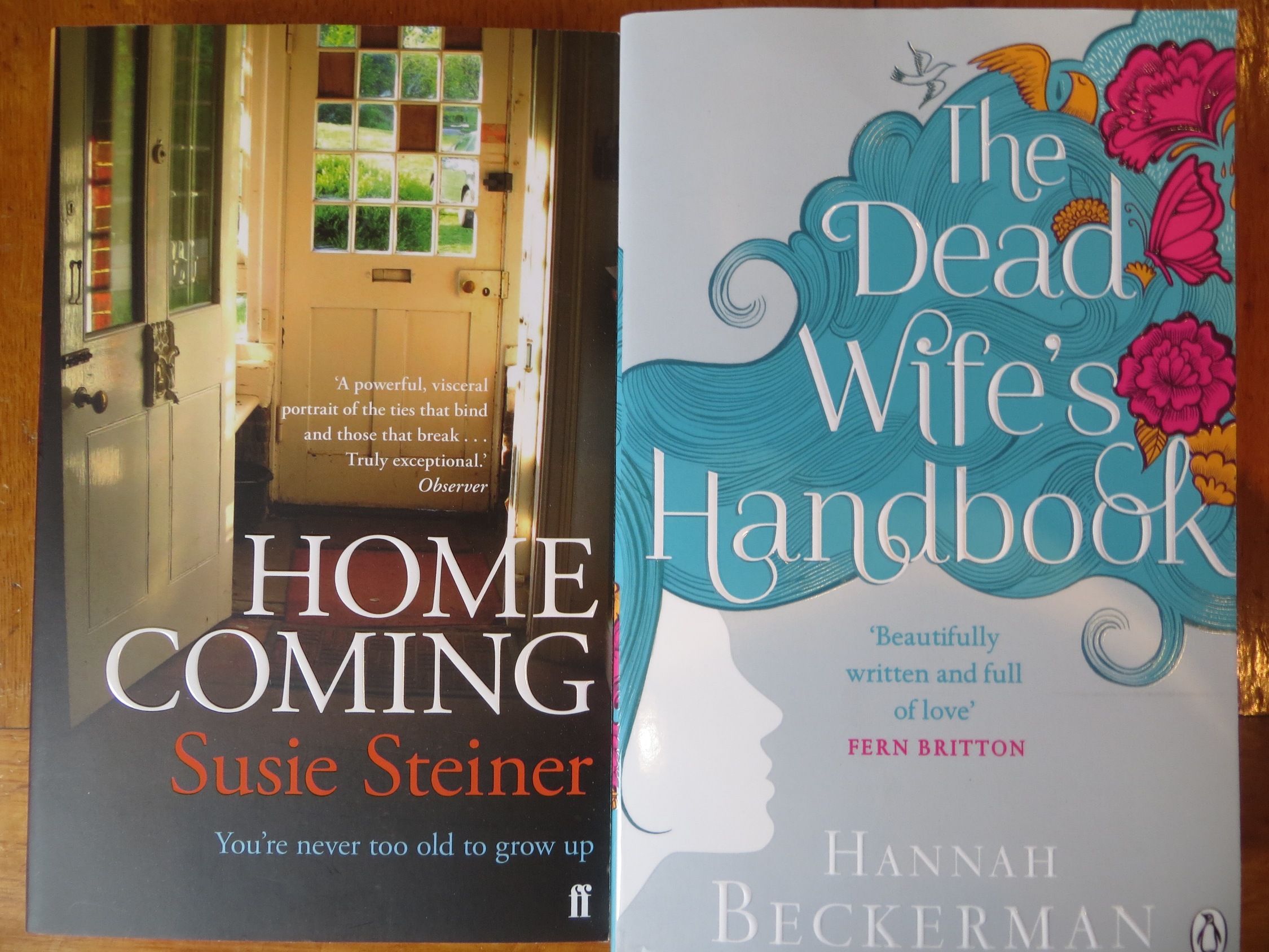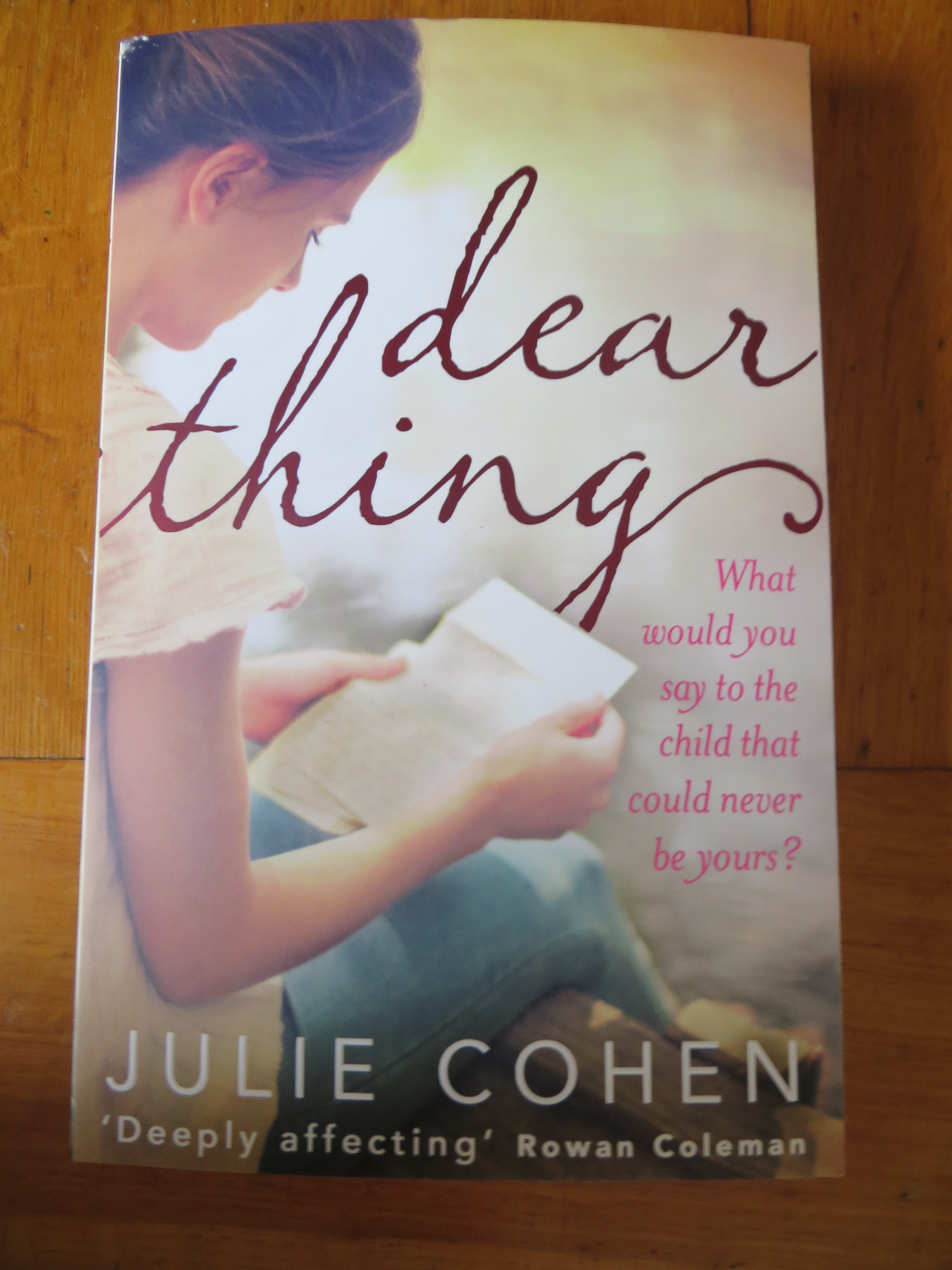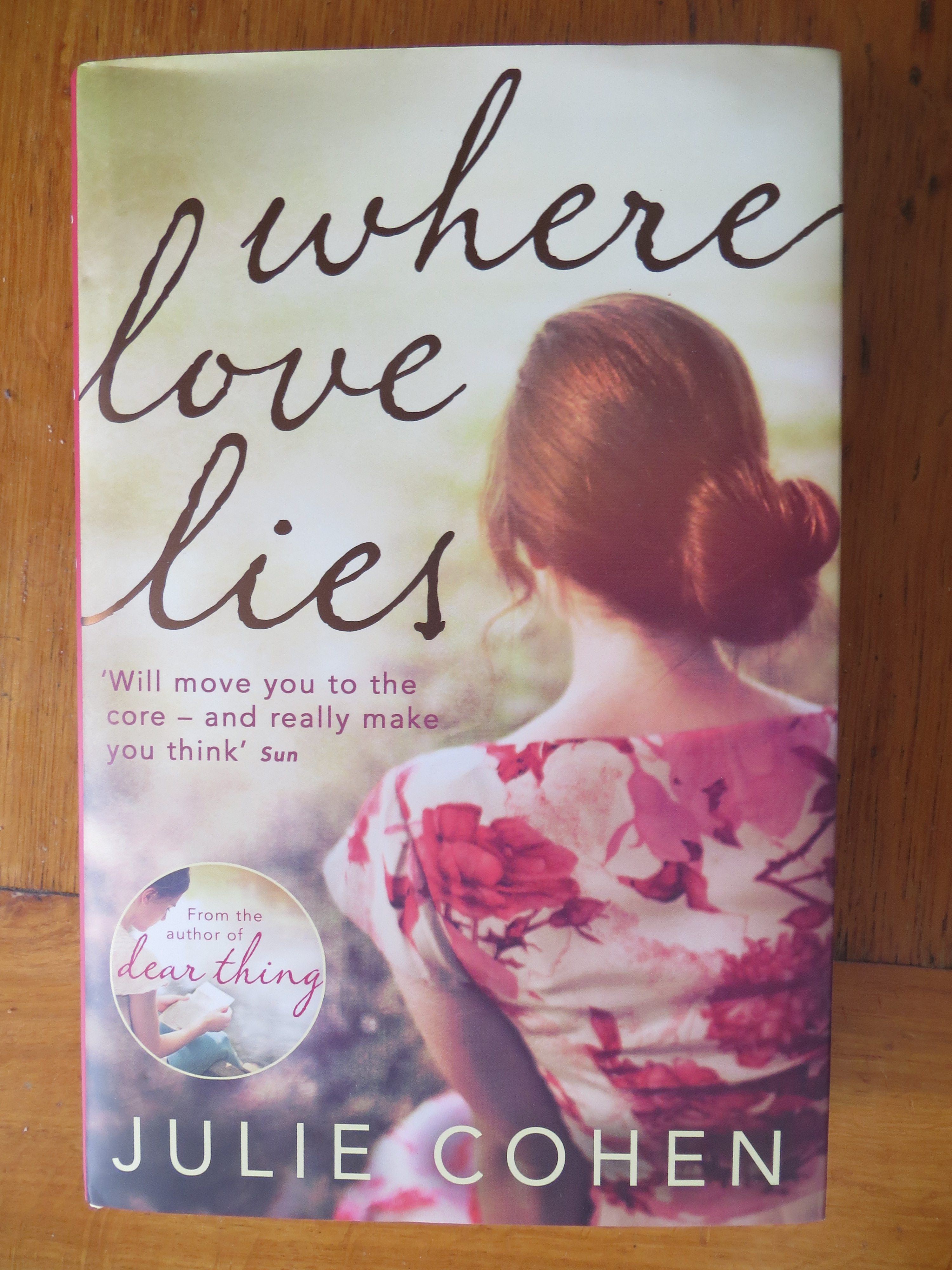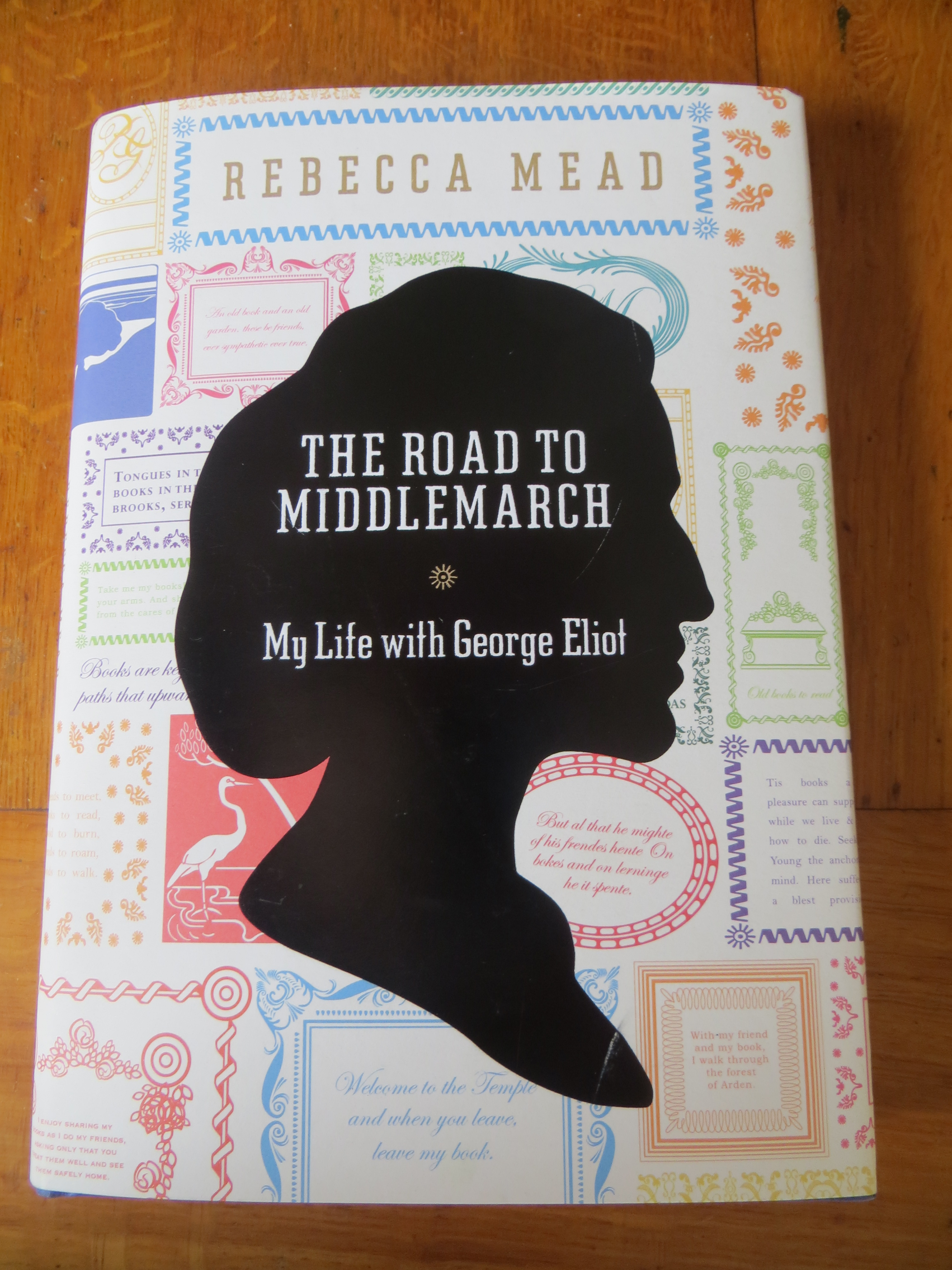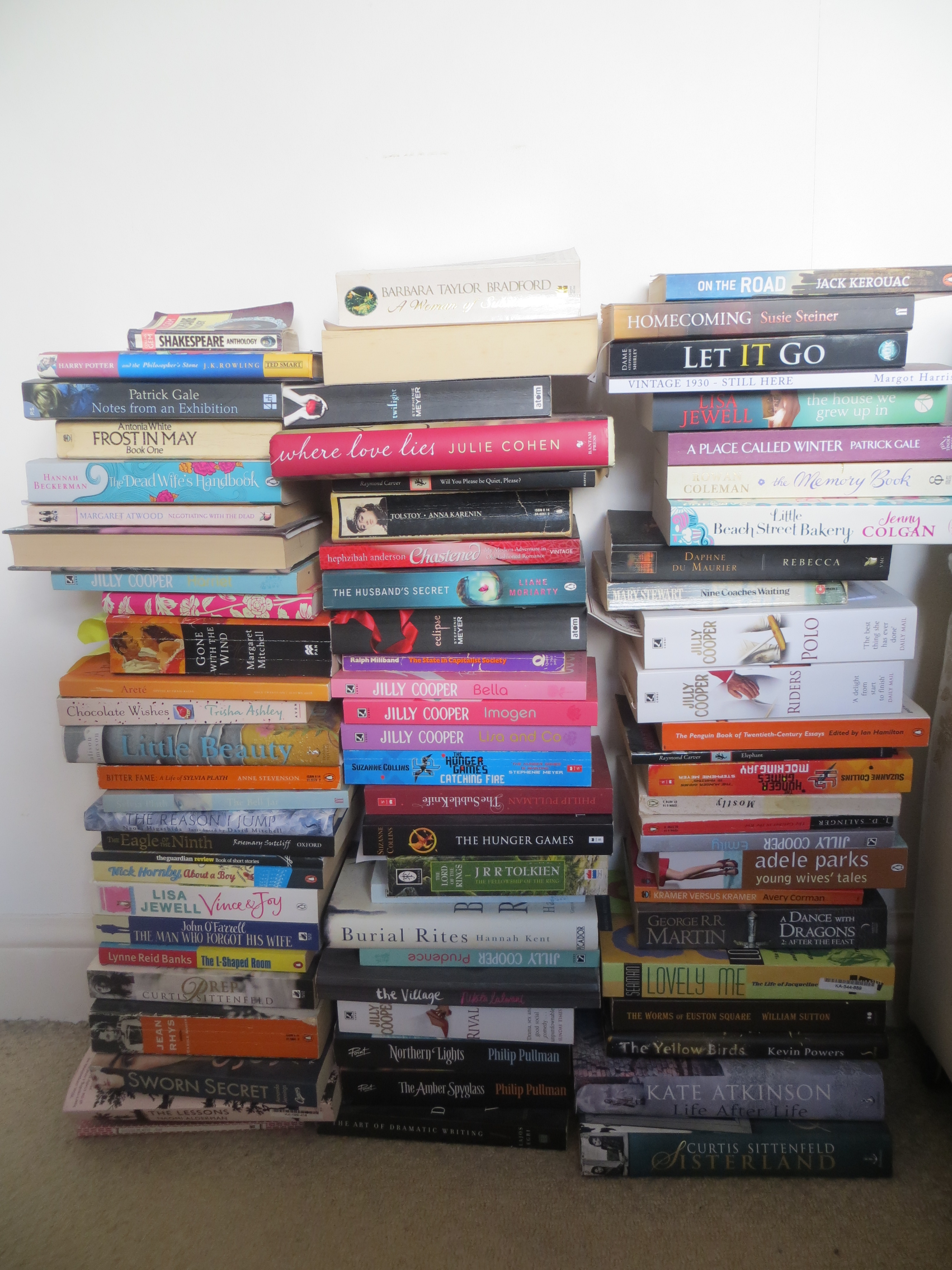 Over the last year, I’ve travelled in time and space from Calcutta in the late 1960s to Canada in the 1900s. I’ve witnessed the sinking of a Thames houseboat (the cat escaped, but only just), the lifting of beet on a struggling Yorkshire hill farm and the smoking of Sobranies at a Hungarian party in a tiny London flat (‘Dar-link! Von-dare-fool!’) I’ve witnessed the invasion of a strip club, a miscarriage at a baby shower, people being abused and betrayed and drawn into relationships with those who have misused them; painters at work, alcoholics in recovery, and, from the perspective of the afterlife, a woman trying to get over her still-living husband.
Over the last year, I’ve travelled in time and space from Calcutta in the late 1960s to Canada in the 1900s. I’ve witnessed the sinking of a Thames houseboat (the cat escaped, but only just), the lifting of beet on a struggling Yorkshire hill farm and the smoking of Sobranies at a Hungarian party in a tiny London flat (‘Dar-link! Von-dare-fool!’) I’ve witnessed the invasion of a strip club, a miscarriage at a baby shower, people being abused and betrayed and drawn into relationships with those who have misused them; painters at work, alcoholics in recovery, and, from the perspective of the afterlife, a woman trying to get over her still-living husband.
I’ve encountered villains, lovers, rescuers, torturers, aliens and a whole host of heroines. I had the chance to get to know Penelope Fitzgerald and George Eliot, and I observed a Brush with Greatness: (fictional) artist Rachel Kelly bumping into Dame Barbara Hepworth on a booze run.
It has been a terrific year’s reading, mainly of novels, almost all by writers who were new to me. Some were published this year, others some time ago; one – Patrick Gale’s A Place Called Winter − is due out in 2015. Some were recommendations; others I looked up because I’d come across the writers on Twitter or heard about them online. Twitter has played a part in my reading this year as never before – it’s a great medium for fandom.
The other novelty for me was that it was the first year I started reading on Kindle – though I’ve read most of these titles in paperback, which I still prefer. I was talking to a reader at a book group recently who said she read everything on her Kindle and had no idea what the books were called – if people asked her what she’d been reading, she had to look it up. She had started making a point of checking what the covers looked like. I’m still getting my head round this brave new ebook world… I don’t feel like I really own a book unless I have it on paper, and I don’t feel like I engage with a story as closely unless I’m actually turning the pages. OK, so we have severe book storage problems in our house, but as far as I’m concerned that is the only real advantage of the ebook. Also, I quite like reading in the bath. So chances are that 2015 will mean yet more demands on our limited shelf space…
Here are the books I read in 2014, which, in a rare fit of nerdiness, I’ve put in alphabetical order by author. (Check out the links to see their Twitter feeds).
Hephzibah Anderson: Chastened. What happens when you give up sex for a year in the hope that it will improve your chances of finding love – or at least make romantic disappointments a bit less heart-wrenching? Does treating ̕em mean keep ̕em keen, or is it just the route to a different kind of loneliness? This candid, witty, elegantly written study of sexual politics in and out of the bedroom is also a paean to the freedom of single-girl city living. It took me right back to my own London days and made me hanker to visit New York. (Should have gone in my twenties. Have still never been.)
Hannah Beckerman: The Dead Wife’s Handbook. The narrator of this novel is dead and grieving, existing in a nebulous afterlife from which she is permitted occasional glimpses of her husband, young daughter, mother and best friend. But as time moves on and their lives begin to change, can she find it in her heart to let go – especially when her husband is eventually coaxed into starting to date again? A smart, tear-jerking and expertly realised portrayal of the frustrations, sadness and joys of playing witness to your own life after the event, and coming to terms with your loved ones’ slow recovery from your loss.
Amanda Brookfield: A Family Man. This is the story of a man whose wife suddenly vanishes, leaving him to learn how to juggle work, childcare and the confusing possibility of new romance as a single parent. A warm, sympathetic account of a dad who finds that what looks like disaster is actually a chance of a different kind of life. Originally published in 2001, now available in ebook.
Julie Cohen: Dear Thing, Where Love Lies. Gosh, it has been a year of weepy reading! Dear Thing, Julie Cohen’s tale of a tug-of-love between two women who both come to want the same man and the same baby, got my tear ducts going. It’s crisply written, artfully structured and beautifully observed – the scene where Claire has a miscarriage at a baby shower is all the more heart-rending for its restraint. Julie has an acute eye for how people behave in extremis and how even good, kind, likeable people can be brutal when circumstances pit them against each other.
Where Love Lies is a lush, mysterious, time-travelling love story that sends its narrator back to her first experience of romance and then pulls her back into her present. Felicity is at the mercy of her senses, overwhelmed by flashbacks to her past and tempted to act on the old feelings that she is experiencing afresh; so who does she truly love – the old boyfriend who she feels impelled to seek out, or the long-suffering husband who has no idea what she is going through?
Tamar Cohen: The Broken. I *had* to peek at the end of this one – I literally couldn’t bear not knowing how it turned out and I had to get some sleep! It’s a study of conflicting loyalties, jealousy, rivalry and anxiety about doing the right thing. When their friends Sasha and Dan break up, Josh and Hannah find themselves sucked in to the fallout: is it wrong for them to meet Dan’s hot new model girlfriend, and is Sasha really as terrible a mother as Dan believes? The story is laced with dark humour and sharply-observed details of the insecurities and self-destructive impulses tucked away behind the shiny facade of North London domestic bliss. Wraps up with a mean twist. (I read Tamar Cohen’s The Mistress’s Revenge last year – there’s a bit about it in my round-up of my books of 2013.)
Rowan Coleman: The Memory Book. This is one to be read with the tissues at the ready, though it’s also very funny – one of my favourite scenes involves a mother and grandmother invading a strip club in order to retrieve the daughter they have found out is working there. This is a novel all about a matriarchy, and Claire, the mother, is at its heart, seeking to record her life in her memory book in a race against time, as she begins to lose her knowledge of who, when and where she is. However, the stories from the past are far from finished, and an intrigue unfolding in the present threatens to wreak havoc on the family as everybody struggles to come to terms with Claire’s worsening condition. Claire’s other half, Greg, is the love of her life, and yet she is meeting someone in secret, despite her increasing confusion. Is she putting herself in danger, and will she be able to help her loved ones make sense of their shared past before it’s too late?
Jenny Colgan: Meet Me at the Cupcake Cafe. A super-sweet comic confection that’s as much about getting your business dream off the ground as it is about choosing Mr Right, though it’s about that too. Published in 2011, it’s the story of how Issy Randall uses her redundancy pay-off to set up a charming café – but will her venture survive the interest that her property developer ex-boyfriend decides to take in it, and will Issy be taken in by him? I saw Jenny at an author event with Lisa Jewell and Rowan Coleman at Henley Literary Festival back in October, and Jenny explained that she was inspired to write Cupcake after moving to France and realising that she was going to have to learn to cook from scratch if her children were ever going to have anything to eat other than carrots, apples and crisps. I’m a baker of Bridget Jones-like incompetence myself, but reading Cupcake did inspire me to dig out my one and only truly reliable cake recipe.
Samantha Ellis: How to be a Heroine. Anne of Green Gables, Lizzie Bennett, or the ladies in Lace? This book, a re-reading of the formative novels that helped shape Samantha’s ideas about what makes a heroine, sent us all back to the fiction we read as children and teenagers to see how different it might look from the perspective of experience. It sparked a zillion conversations and got me thinking about my own personal canon of the women writers I’ve loved the most. Samantha’s book is a nostalgia-inducing book-lover’s approach to the questions that trouble all heroines: how to find love, happiness, yourself. Pure pleasure – and thought-provoking, revealing, brave, frank and funny, too.
Penelope Fitzgerald: The Bookshop. Also Hermione Lee’s Life of Penelope Fitzgerald. I came to Penelope Fitzgerald through the reviews of Hermione Lee’s Life. I was struck by the details that conveyed the indignities of not having enough money and trying to find ways to make do, sometimes with disastrous results: the affordable but leaky and decrepit Thames houseboat that ended up sinking, the attempt to dye her hair with tea-bags. I read the biography and then read my first of her novels, The Bookshop. It’s short, succinct, devastating and brilliant, and the sucker-punch ending floored me and made me howl as few books have done (the ending of Notes from an Exhibition also caught me by surprise by making me bawl like a thwarted baby.)
Patrick Gale: Notes from an Exhibition and A Place called Winter. (A Place Called Winter is out spring 2015 – I was lucky enough to receive a proof copy.) My work book group read Notes from an Exhibition some time ago; I missed it at the time (writing deadline – writing does sometimes interfere with my reading) and decided to catch up on it later. It’s set largely in Cornwall, so was great to read in the run-up to our first ever family holiday and my first visit to Cornwall in more than a decade. I admired and enjoyed it very much and it made me cry hopelessly. Some brief notes on what struck me: the portrait of the painter at work – so well realised, the physicality of the paint, the messiness of it; the Quakers; the relationships between the siblings, maternal and marital and filial love; and the pure storytelling – the movement from one point of view to another, revealing one surprise and then another until the last page goes over and you realise there isn’t any more. I’ve been in the process of moving from writing in the first person for my second novel back to the third person for my third, and it was a liberating reminder of just how much you can do with the third person.
A Place Called Winter – this is a historical novel about Harry Cane, a gay man in the 1900s who is forced by a scandal to leave England and settle in Canada. He embraces a new life as a farmer, but any chance he has of finding love and happiness is always attended by terrible jeopardy. It’s a profoundly romantic story – love stories need opposition, and if Harry is to be lucky enough to find a man to love and be loved by in return, their relationship will always be under threat, always required to remain a secret. There are some harrowing scenes of violence, and their consequences are explored with great truthfulness and insight. This is a novel with a sweepingly vivid sense of place, brilliant on the challenges and satisfactions of working on the land in different seasons and on the search for a place to call home and someone to share it with. It feels like a story that was crying out to be told.
Matt Haig: The Humans. A couple of years ago I read Moondust by Andrew Smith, which describes his mission to track down all of the surviving astronauts who walked on the moon and record their memories of it. It seemed that what was really remarkable about going to the moon was the perspective it offered on the Earth; how beautiful and precious it appears from a great distance, surrounded by blackness. Matt Haig’s wise and funny novel pulls off a similar trick. There’s no place quite like home and the people that make it so – and how better to arrive at a full appreciation of what it is to be human than by adopting the perspective of an alien who has fallen to earth, with a mission that is in jeopardy as soon as he begins to learn what it is to love?
Amanda Jennings: The Judas Scar. Amanda’s second novel is a dark, suspense-filled page-turner that explores the guilt felt by a man who failed to protect a childhood friend from a brutal history of boarding-school bullying. It’s also a tale of a marriage that is at risk from secrets on both sides, as well as being under attack from the treacherous intentions of apparent friends. When someone Will never thought to see again unexpectedly begins to play a part in his life once more, the consequences are potentially deadly – but who for? There is plenty that Will hasn’t told Harmony, his wife, and by and by Harmony will have reasons of her own to feel guilty… Amanda’s first novel, Sworn Secret, came out on the same day as my first, Stop the Clock – publication day twins! Amanda wowed a packed-out Henley Town Hall at Henley Literary Festival this year and I’m looking forward to her third novel.
Harriet Lane: Alys, Always. The scheming, shrewd, manipulative narrator of Harriet Lane’s debut novel is one of my favourite antiheroines ever. A dark twin of the narrator of Daphne du Maurier’s Rebecca, she has no compunction whatsoever about trying to step into a dead woman’s shoes, and is dauntlessly predatory as she hunts down the highly-regarded widower she has set her heart on. A sense of something unseen, or something bad about to happen lurking around the corner, permeates this book. Will the schemer be exposed? Has she ventured out of her depth? It’s also a darkly funny account of what it takes to get ahead in the literary world, which might aptly be subtitled (with a nod to Tamar Cohen’s debut) The Sub’s Revenge.
Rebecca Mead: The Road to Middlemarch. One of my most vivid memories of reading this year is of turning to this book after a car breakdown on the road to Abingdon one hot summer afternoon, while waiting for the RAC to come and sort me out. It’s a personal appreciation of George Eliot and an exploration of her work and life, and it’s wry, witty, sharply observed and ultimately profoundly touching. I finished it filled with admiration for George Eliot, both for the brilliance of her writing and the courage it took to live her life as she did, on her own terms, flouting convention by cohabiting with a married man. Rebecca’s tribute to George Eliot was an excellent diversion from my roadside predicament, which was, thankfully, soon resolved.
Charlotte Mendelson: Almost English. Marina longs only to be inconspicuous at her super-snooty English public school, but her outspoken, glamorous, elderly Hungarian relatives have other ideas, and are not inclined to be discreet about them. They are ever ready to judge the appearance and behaviour of all and sundry – Marina included – with their favourite epithets, Von-dare-fool! and Tair-ible! And yet there is no doubting their love for her and the sincerity of their desire to see her succeed – and the weight of the responsibility she feels towards them in return. Includes an acidly funny portrait of Marina’s mother’s dangerous yearning for romantic escape, or, at least, a life that involves a modicum of privacy, a decent duvet and some labour-saving devices; an account of an almost-romantic reunion; a tragicomic tale of miscommunication between mother and daughter; a sly debunking of a smug male authority figure; and a hilariously liberating conclusion. All the joys of the school story set against the perfect foil: Marina’s Sobranie-smoking, silky-bloused great-aunts and their Hungarian expatriate community. And oh, the food! Made me so long to be invited to one of the great-aunts’ parties in their tiny London flat.
Lorrie Moore: Birds of America. I got this so I could read the short story People Like That Are the Only People Here: Canonical Babbling in Peed Onk. SO GOOD. If you’ve ever spent any time in hospital with a child – or in hospital, full stop – or just want to read a miracle of storytelling packed into 39 pages, this is for you.
Liane Moriarty: The Husband’s Secret. This was recommended to me at a book group I went along to talk to about After I Left You. It’s a masterclass in how to build tension by moving between different points of view and raising the reader’s suspicions: just how dreadful is the husband’s secret, and what is the wife going to do when she finds out? It also explores a classic moral dilemma: what would you do if you found out the person you’d shared your life with had done something terrible before you even met? Cleverly structured and psychologically acute, plus every chapter is as well crafted as a stand-alone short story.
Neel Mukherjee: The Lives of Others. Neel’s second novel was shortlisted for the Man Booker prize and is now on the shortlist for the Costa and nominated for the Folio Prize. So many scenes stick in the mind, from the act of sabotage involving nail varnish and special clothes to the bitter, tender ending. It is a brilliant novel, and a devastating account of the violent and terrible consequences of great inequality.
Alice Peterson: One Step Closer to You and Monday to Friday Man. Monday to Friday Man knocked Fifty Shades of Grey off the kindle no 1 spot; it’s a touching romance about how meeting fellow dog-walkers and taking a weekday lodger might just get you over heartbreak and change your life, with a moving back-story about a much-loved sibling. Alice is brilliant at weaving together heartwarming love stories with explorations of experiences that bring her characters into conflict and put them to the test. Her new novel, One Step Closer to You, is about addiction and its impact on family life and relationships; its heroine’s recovery is threatened when the father of her child seeks to come back into their lives. The AA scenes are brilliantly done and I found the scene from Polly’s childhood when her brother Hugo leaves home for a residential school absolutely devastating. Polly is left feeling that she can never make up for how much her parents miss Hugo, and the novel shows how this and other losses add to her vulnerability when looking for love.
Geoffrey Robertson QC: Stephen Ward Was Innocent, OK: The Case for Overturning His Conviction. I’m distantly related to Stephen Ward, which doesn’t make me feel any closer to his story than anybody else, but did add an extra frisson of curiosity to the experience of reading this spirited defence of a man who seems to have been a charming, hedonistic chancer, well and truly hung out to dry by the Establishment. I hope I’m still around in 2046 when they finally release the records relating to the Profumo affair – my hunch is that there may yet be some interesting stuff to come out… (Here’s a recent Guardian article by Geoffrey Robertson about the Profumo affair, written following the death of Mandy Rice-Davies.)
Barbara Seaman: Lovely Me: Life of Jacqueline Susann. I always approach books that touch on autism with both curiosity and wariness – will they be upsetting? Infuriating? Enlightening? I was appalled to learn that Jacqueline’s son, her only child, was given ECT at the age of three in an attempt to treat his autism. (He was institutionalised soon afterwards.) It’s a devastating book, but an inspiring one too – Jacqueline was nothing if not a grafter. Her Valley of the Dolls is, apparently, one of the ten most widely distributed books in history – along with the Bible, Mao Tse-Tung’s Quotations and the Guinness Book of World Records.
Susie Steiner: Homecoming. This debut novel about a Yorkshire farming family introduced me to a tight-knit world where old livelihoods are increasingly hazardous, and making the wrong decision about how and when to lift the beet is to incur the risk of financial ruin. But what happens when the capable prodigal son returns? The characters are beautifully and lovingly evoked, from the pub vamp to the daughter-in-law-in-waiting who loves nothing better than to be left in peace with her wiring. An illuminating depiction of the horrors of lambing gone wrong and the satisfaction of seeing new life brought into the world, sibling rivalry, the settling of scores and the dawning joy of finding love you don’t want to live without.
Rebecca Wait: The View on the Way Down. Rebecca is an honorary Abingdonian and I’d heard this debut novel spoken about admiringly by mums and grandmothers in my children’s school playground. It’s about a family that has fallen apart after the death of one child and the disappearance of another: is there any hope of reconciliation? Painful family mealtimes, brotherly bonding over computer games, the awfulness of girls at school and the edgy, forceful positivity of the mother who’s trying and failing to hold it all together are all brilliantly summoned up in this tender, bold and poignant novel. A terrific debut.
Polly Williams: Husband, Missing. Gina fell in love hard and married fast. Six months later her husband, Rex, goes on a trip to Spain with his brother and some friends, and disappears. As Gina investigates Rex’s disappearance and begins to uncover the secrets he has been hiding, she is forced to confront the possibility that the charismatic, successful man whose spell she fell under so quickly was an illusion. But what became of him – and what is his brother not telling her? And was there something crucial that she had failed to tell him? A cracking tale of marital mistrust and how falling in love can blind you to truths you don’t want to acknowledge.
So, what’s on my reading list for 2015? I’m currently reading Lisa Jewell’s The House We Grew Up In, and I want to read the new Louise Douglas, Your Beautiful Lies, and Sarah Vaughan’s The Art of Baking Blind. I’ve dipped into the autobiographies of Dame Stephanie Shirley and Margot Harris and will revisit them to read them more closely. My Christmas list included Daughter by Jane Shemilt, Offshore by Penelope Fitzgerald, Love, Nina by Nina Stibbe, The Rosie Project by Graeme Simsion, Apple Tree Yard by Louise Doughty and My Policeman by Bethan Roberts. I’ve bought Rachel Hore’s The Gathering Storm and Santa Montefiore’s The Butterfly Box as gifts but I think I’ll be able to borrow them by and by – so, plenty to keep me going!
I also predict that, in 2015, somebody will write an article bewailing the state of women’s commercial fiction. (To echo Mandy Rice-Davies – they would, wouldn’t they?) This year Julie Bindel had a bit of a go in a blog post for The Spectator, coining the phrase ‘sick chick lit’ (others have talked about ‘chick noir’ or ‘domestic gothic’ when attempting to highlight the publishing trend Julie was getting at). There was then a set-to on Twitter which gave rise to my phrase of the year (another Julie Bindel coinage): Chick Lit Lout. I’ll have that on a t-shirt please, in glittery pink.
I’ll sign off with a quote from one of George R R Martin’s Game of Thrones books: ‘A reader lives a thousand lives before he dies… The man who never reads lives only one.’ Merry Christmas one and all, and all the very best for 2015. And happy reading!


